The Secret to Being Precocious: Mary Shelly & “Frankenstein”
For two centuries now, Frankenstein has been an easy book to hate, and Mary Shelley has been an easy target for envy.
When Frankenstein was published anonymously in January 1818, readers were scandalized by Victor ransacking graves and daring to play God. Even after Mary Shelley was revealed as the author, some reviewers still maintained that only her mad husband Percy could have written it. For all that, it has never been out of print and has spawned hundreds of stage and screen adaptations.
With its overwrought and silly dialogue, absurd plot devices, and mixture of mayhem and moralizing, how did it become an enduring cultural force? How could a teenaged girl have created what she herself called this “hideous progeny?” Before queasy readers or jealous writers grab pitchforks and torches, let’s give Mary Shelley her due.
True, she had the good fortune to be the child of William Godwin and Mary Wollstonecraft Godwin, two of the brightest intellectuals of the age, growing up in a home visited by Samuel Taylor Coleridge (who recited “The Rime of the Ancient Mariner” for her), Charles and Mary Lamb, John Keats, scientists such as Humphry Davy, and—among many other notables—even Aaron Burr (for whom she and her sisters danced). Her intimate circle consisted of Percy Shelley, Byron, and Dr. John Polidori. It was Byron who prompted the group to hold the most famous ghost story contest in history at the villa Diodati outside Geneva. Since that contest sparked both Frankenstein and Polidori’s novel The Vampyre, it engendered two of our most enduring horror movie icons.
Yet Mary deserves sympathy almost as much as her abandoned creature does. When she began the novel, she had lost her famous mother at birth, been disowned by her father for running off with Percy Shelley, and lost her own newborn daughter. She ran away from a wicked stepmother and a household of five children born from two different fathers and four different mothers. Though much more suffering would plague her life, here was certainly more than enough pain to foster artistic expression.
Still, Mary Shelley was driven by a fierce intellectual curiosity and a relentless ambition to live up to the example of her parents, particularly her mother. As a teenager, she was reading widely and deeply: Milton, Shakespeare, Gibbon, Burke, Goethe, Voltaire, de Staël, French and Italian drama, Ovid, Virgil. Much like the creature in her novel, who soaks up Paradise Lost and speaks like Milton’s characters, she absorbed the skills of her craft, not just reading, but translating and studying and journaling diligently. She served her apprenticeship, but she broke new ground as well. She took advice from her famous companions, but she did not let them squelch her unique voice.
She produced an intricately structured novel, with multiple narrative voices and stories within stories. Though its dialogue may sound stilted to our modern ears, the voices are passionate and compelling. With the audacity of youth, Mary Shelley challenges the old Miltonic world-view, advocates for social justice, and issues a clear warning about the dangers of unfettered human curiosity.
If you want to be precocious—at any age—read widely and deeply, engage with people and ideas, channel your ambition into work, imitate and rebel in equal measure, be both diligent and daring.

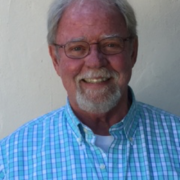 Dennis Patrick Slattery, Ph.D., is Emeritus Faculty at Pacifica Graduate Institute. He is the author, co-author, editor or co-editor of 26 books, and the author of more than 200 articles on literature, psychology, culture and myth. He will publish three new works in 2019: Deep Creativity: Seven Ways to Spark Your Creative Spirit (Shambhala Press); a co-edited volume of the letters of Joseph Campbell; and a volume on Homer’s Odyssey. He continues to teach as Emeritus faculty and to offer “Riting Retreats” on exploring one’s personal myth. Dennis continues to take classes and paint in both acrylic and watercolor as well as ride his Harley-Davidson motorcycle through the Hill Country of Texas.
Dennis Patrick Slattery, Ph.D., is Emeritus Faculty at Pacifica Graduate Institute. He is the author, co-author, editor or co-editor of 26 books, and the author of more than 200 articles on literature, psychology, culture and myth. He will publish three new works in 2019: Deep Creativity: Seven Ways to Spark Your Creative Spirit (Shambhala Press); a co-edited volume of the letters of Joseph Campbell; and a volume on Homer’s Odyssey. He continues to teach as Emeritus faculty and to offer “Riting Retreats” on exploring one’s personal myth. Dennis continues to take classes and paint in both acrylic and watercolor as well as ride his Harley-Davidson motorcycle through the Hill Country of Texas.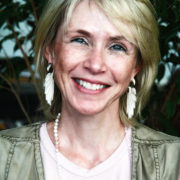 Kathie Collins, Ph.D., co-founder of Charlotte Center for Literary Arts, earned her graduate degree in Mythological Studies with an emphasis in Depth Psychology at Pacifica Graduate Institute, where she is currently an adjunct professor. A poet and lifelong student of Jungian psychology, Kathie thrives in the in-between space from which dreams and creativity emerge. She’s happiest when she can share that space with others and one of her great passions is bringing words and people together for transformative conversations. Kathie’s poetry has appeared in Immanence, Kakalak, Bible Workbench, and Between. Her chapbook Jubilee was published by Main Street Rag in 2011.
Kathie Collins, Ph.D., co-founder of Charlotte Center for Literary Arts, earned her graduate degree in Mythological Studies with an emphasis in Depth Psychology at Pacifica Graduate Institute, where she is currently an adjunct professor. A poet and lifelong student of Jungian psychology, Kathie thrives in the in-between space from which dreams and creativity emerge. She’s happiest when she can share that space with others and one of her great passions is bringing words and people together for transformative conversations. Kathie’s poetry has appeared in Immanence, Kakalak, Bible Workbench, and Between. Her chapbook Jubilee was published by Main Street Rag in 2011.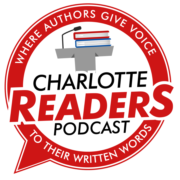 I’ve always loved to read. In my twenties and thirties, I read historical fiction, Louis L’A
I’ve always loved to read. In my twenties and thirties, I read historical fiction, Louis L’A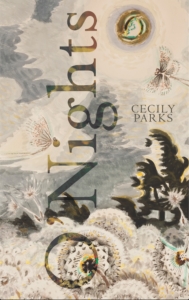 In Walden, Henry David Thoreau’s classic, hermited study of the natural world, he acknowledges his immersive contemplation might be considered odd. “This was sheer idleness to my fellow townsmen, no doubt; but if the birds and flowers had tried me by their standard, I should not have been found wanting.” That standard—of the stars, the moon, the meadow—is the one Cecily Parks’ aspires to in her second collection of poetry, O’Nights (Alice James Books, 2015). Its speaker is the female incarnation of a present-day wanderer trying to commune with what’s left of the wild, one whose solitary forest wanderings mark her even after she finds love and returns to an urban environment.
In Walden, Henry David Thoreau’s classic, hermited study of the natural world, he acknowledges his immersive contemplation might be considered odd. “This was sheer idleness to my fellow townsmen, no doubt; but if the birds and flowers had tried me by their standard, I should not have been found wanting.” That standard—of the stars, the moon, the meadow—is the one Cecily Parks’ aspires to in her second collection of poetry, O’Nights (Alice James Books, 2015). Its speaker is the female incarnation of a present-day wanderer trying to commune with what’s left of the wild, one whose solitary forest wanderings mark her even after she finds love and returns to an urban environment.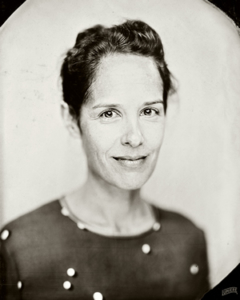 O’Nights, which takes its title from an anecdote found in Thoreau’s journal, is split into three sections. In the first, the speaker is alone and spends her days (and nights) closely observing the natural world. While she may be the sole human, her solitude expands to encompass a wider community of the forest where she finds herself in conversation with the wild entities that surround her. She is alone, but not lonely. “Hurricane Song,” the powerful, opening poem, describes the “little kidnapped thrill that comes with drastic weather,” the feeling of being out in a storm’s overture. She’s on the same level as the pines, the grass, and the deer who “flips herself over and over, white tail-spark,/black hoof-sparks, brown wheel.” This leveling serves as a reminder that we humans are animals after all, still part of an ecosystem, still subject to the whims of weather. A sense of restless energy runs through this section as the speaker, eschewing comfort and convention, roams alone.
O’Nights, which takes its title from an anecdote found in Thoreau’s journal, is split into three sections. In the first, the speaker is alone and spends her days (and nights) closely observing the natural world. While she may be the sole human, her solitude expands to encompass a wider community of the forest where she finds herself in conversation with the wild entities that surround her. She is alone, but not lonely. “Hurricane Song,” the powerful, opening poem, describes the “little kidnapped thrill that comes with drastic weather,” the feeling of being out in a storm’s overture. She’s on the same level as the pines, the grass, and the deer who “flips herself over and over, white tail-spark,/black hoof-sparks, brown wheel.” This leveling serves as a reminder that we humans are animals after all, still part of an ecosystem, still subject to the whims of weather. A sense of restless energy runs through this section as the speaker, eschewing comfort and convention, roams alone.